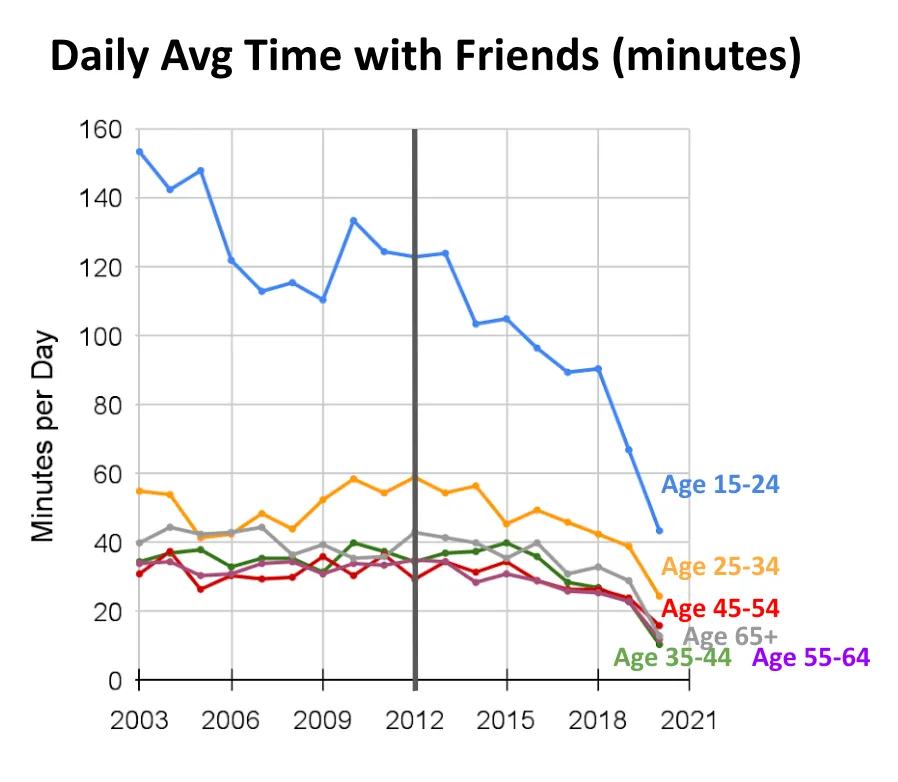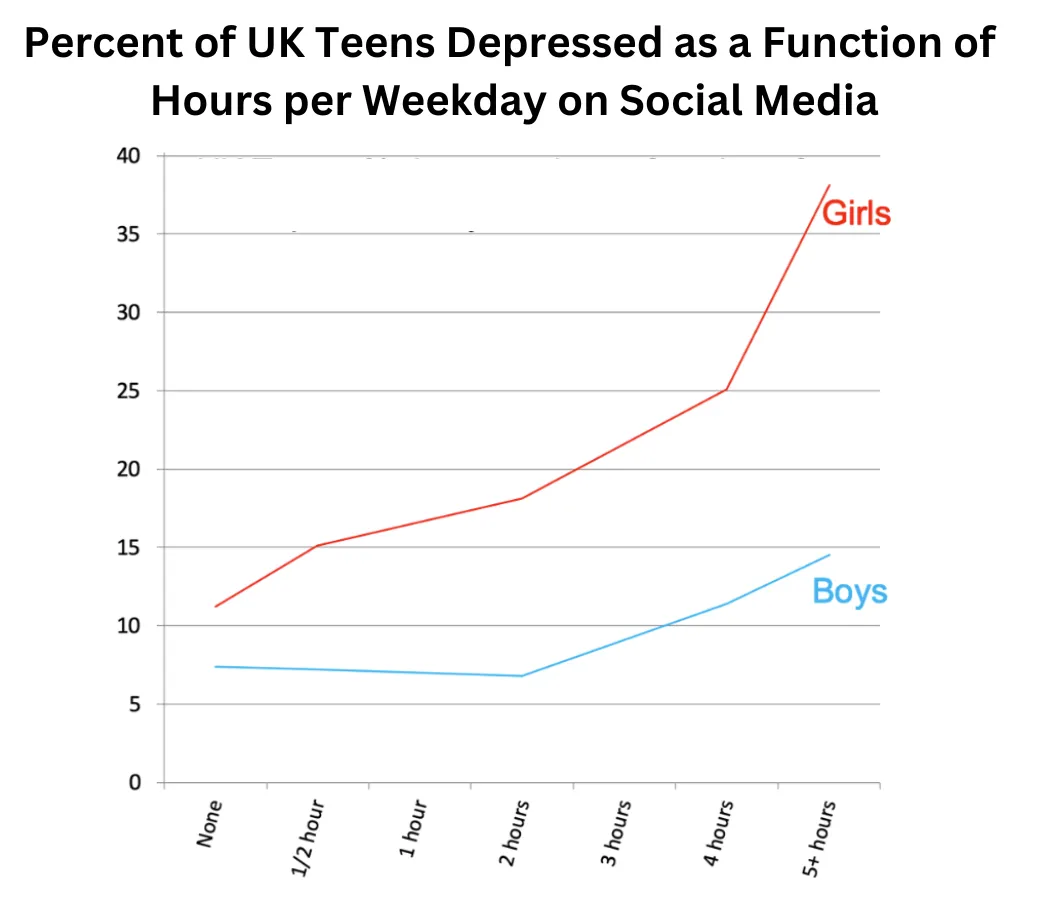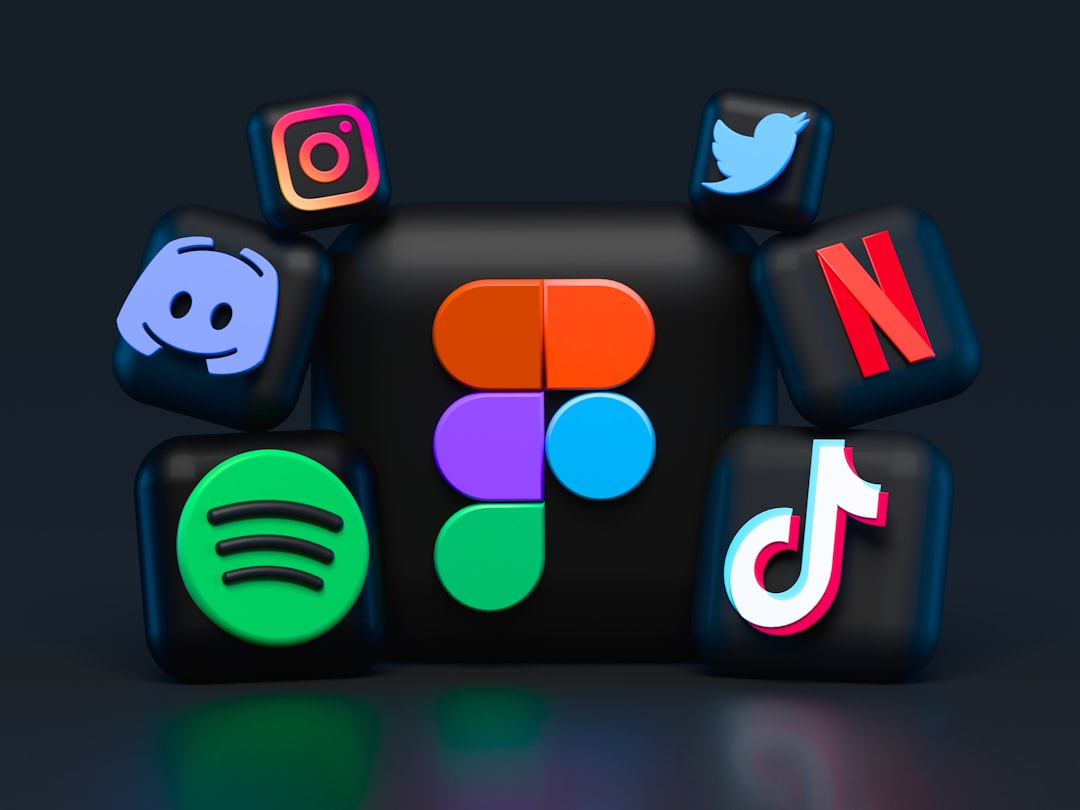I read a really interesting article recently, which I’m linking here: https://jonathanhaidt.substack.com/p/social-media-mental-illness-epidemic.
The article explores a ‘mental illness epidemic in teen girls’, and puts forward an exceptionally strong argument that this is caused by social media.
There were a few things I found really interesting.
COVID Didn’t Change Much
COVID didn’t have much effect on the overall trends, which just kept marching on as they have since around 2012
The author posits that “[t]eens were already socially distanced by 2019”, so COVID had limited effect. This is a really interesting observation, and seems at least anecdotally true. A preceding article was posted with a graph supporting this conclusion.

2012 is an interesting reference point here, as it was around the time Instagram really took off (after being bought by Facebook). However, the author says that there are multiple causes, summarising his position by saying “in brief, it’s the transition from a play-based childhood involving a lot of risky unsupervised play, which is essential for overcoming fear and fragility, to a phone-based childhood which blocks normal human development by taking time away from sleep, play, and in-person socializing, as well as causing addiction and drowning kids in social comparisons they can’t win.”
Most Existing Studies Are Flawed
Nearly all of the research […] have treated social media as if it were like sugar consumption. But social media is very different because it transforms social life for everyone, even for those who don’t use social media, whereas sugar consumption just harms the consumer. [… In] 2015, when most girls are on Instagram [, s]uppose that a 12-year-old girl decided to quit all social media platforms. Would her mental health improve? Not necessarily.
Having individual children quit social media may have net negative consequences for that individual (which is known as the ‘Goldilocks effect’). There’s a wealth of studies looking into mental health and sovial media, but often those studies are flawed, or come to conclusions based on only one aspect of the problem: docs.google.com/document/d/1w-HOfseF2wF9YIpXwUUtP65-olnkPyWcgF5BiAtBEy0. Even then, the vast majority of studies find high correlations between social media use and mental health issues.
18 experiments have been conducted. 12 found a causal effect, and six didn’t. Of the six, four asked participants to reduce social media use for less than a week. Removing all short studies, 8 found a causal effect and 2 did not.
Furthermore, as the graph below shows, ‘low dose’ usage (an hour or two per day) is not much worse than not using social media at all—in fact for boys it even appears that up to 2 hours per day is even beneficial. However, the correlation is very high.

It was also interesting to note that ‘controlling for these psychological variables [that are potential mediators of a relationship between social media usage and poor mental health, such as negative attitudes about school and closeness with parents] heavily suppressed the relationship between social media use and poor mental health.‘
It’s Worse for Girls
most teen girls (57%) now say that they experience persistent sadness or hopelessness [and] 30% of teen girls now say that they have seriously considered suicide
Correlation is very high between social media use and depression/anxiety for girls in particular. “the proper comparison is not potatoes and eyeglasses, it is marijuana use and binge drinking”. When looking at rural areas with poor internet connections, it was found that the introduction of high-speed wireless internet “significantly increased teen girls’ mental health diagnoses — by 90% — relative to teen boys”.
I can’t be the only one to find this extremely concerning?
